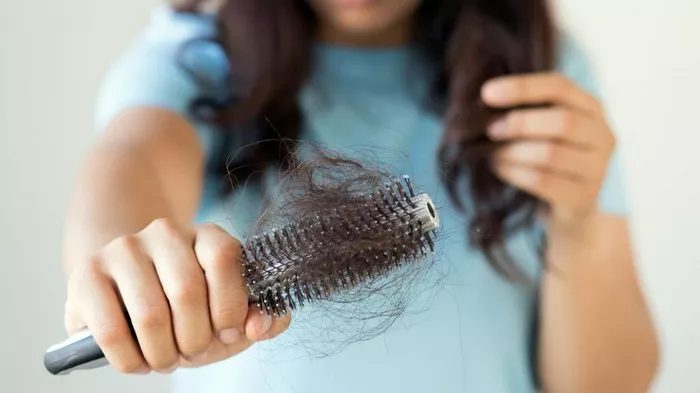Telogen effluvium is a common form of temporary hair loss characterized by excessive shedding of hair from the scalp. While it can be distressing for those experiencing it, the good news is that it’s usually reversible with the right treatment. In this article, we’ll delve into the causes of telogen effluvium and explore the various treatment options available to address this condition effectively.
What Causes Telogen Effluvium?
Before delving into treatment options, it’s crucial to understand what triggers telogen effluvium. Typically, this condition occurs when a significant number of hair follicles enter the telogen or resting phase prematurely, leading to increased shedding. Several factors can precipitate telogen effluvium, including:
1. Physical or Emotional Stress: High-stress levels, whether due to a traumatic event, surgery, illness, or significant weight loss, can disrupt the normal hair growth cycle, pushing more hair follicles into the resting phase.
2. Hormonal Changes: Fluctuations in hormones, such as those experienced during pregnancy, childbirth, menopause, or thyroid disorders, can contribute to telogen effluvium.
3. Nutritional Deficiencies: Inadequate intake of essential nutrients like iron, protein, vitamins (especially B vitamins), and minerals can impact hair health and lead to excessive shedding.
4. Medical Conditions: Certain medical conditions, such as autoimmune diseases, chronic illnesses, and scalp disorders like seborrheic dermatitis, can trigger telogen effluvium.
5. Medications: Certain medications, including those used for cancer chemotherapy, antidepressants, beta-blockers, and retinoids, can disrupt the hair growth cycle and cause temporary hair loss.
Identifying and addressing the underlying cause of telogen effluvium is essential for effective treatment. Once the trigger is addressed, the hair growth cycle typically returns to normal, and the shedding diminishes. However, in some cases, additional interventions may be necessary to promote hair regrowth and restore fullness to the hair.
Best Treatment Options for Telogen Effluvium
The treatment approach for telogen effluvium primarily focuses on addressing the underlying cause, promoting hair regrowth, and maintaining scalp health. Here are some of the best treatment options available:
1. Addressing Underlying Causes:
Since telogen effluvium is often triggered by underlying factors such as stress, hormonal imbalances, nutritional deficiencies, or medical conditions, addressing these issues is crucial for effective management. This may involve stress reduction techniques, hormone therapy, dietary changes, or treating underlying medical conditions under the guidance of a healthcare professional.
2. Nutritional Supplements:
In cases where nutritional deficiencies contribute to telogen effluvium, supplementation with vitamins and minerals essential for hair health may be beneficial. Common supplements include iron, biotin, vitamin D, and omega-3 fatty acids. However, it’s essential to consult with a healthcare provider before starting any supplements to ensure they’re appropriate and safe for your individual needs.
3. Topical Treatments:
Several topical treatments may help stimulate hair regrowth and improve scalp health in individuals with telogen effluvium. Minoxidil, a topical solution applied directly to the scalp, is FDA-approved for treating hereditary hair loss and may also be beneficial for telogen effluvium. It works by prolonging the growth phase of the hair follicles and increasing blood flow to the scalp, promoting thicker, fuller hair growth.
4. Scalp Care:
Proper scalp care is essential for maintaining a healthy environment for hair growth. Gentle cleansing with a mild shampoo and conditioner can help remove excess oil, dirt, and product buildup without stripping the scalp of its natural oils. Additionally, avoiding harsh styling practices such as tight hairstyles, heat styling, and chemical treatments can prevent further damage to the hair and scalp.
5. Lifestyle Modifications:
Making lifestyle changes to reduce stress levels, improve sleep quality, and adopt a balanced diet rich in essential nutrients can support overall hair health and promote hair regrowth in individuals with telogen effluvium. Engaging in regular exercise, practicing relaxation techniques such as yoga or meditation, and seeking support from friends, family, or a mental health professional can all help manage stress and its impact on hair loss.
6. Professional Consultation:
If you’re experiencing persistent or severe hair loss due to telogen effluvium, it’s essential to consult with a dermatologist or healthcare provider who specializes in hair disorders. They can evaluate your condition, identify any underlying causes, and recommend appropriate treatment options tailored to your individual needs. In some cases, they may also perform additional tests, such as blood work or scalp biopsies, to further investigate the underlying cause of hair loss.
Conclusion
Telogen effluvium is a common and often reversible form of hair loss characterized by excessive shedding from the scalp. While it can be triggered by various factors, including stress, hormonal changes, nutritional deficiencies, medical conditions, and medications, the prognosis is generally favorable with appropriate treatment. By addressing the underlying cause, promoting scalp health, and supporting hair regrowth through lifestyle modifications, nutritional supplements, topical treatments, and professional guidance, individuals with telogen effluvium can often achieve significant improvement in hair density and overall hair health. If you’re experiencing persistent or severe hair loss, it’s essential to consult with a healthcare professional for an accurate diagnosis and personalized treatment plan. With the right approach, you can take control of your hair health and restore confidence in your appearance.


